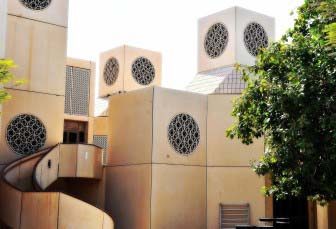
With prospective voters showing limited interest in this spring’s Central Municipal Council (CMC) elections, a local human rights official has called on Qatari university students to “enhance the democratic process” by casting a ballot.
“People need to practice their voting rights to understand the democratic process and learn that their will and voices matter,” said Yousef bin Obeidan Fakhro, the deputy chairman of Qatar’s National Human Rights Commission.
He was speaking at a panel discussion at Qatar University late last week on women’s political rights. The event was held several weeks before the May 13 CMC elections, which may see the lowest number of registered voters in the political body’s 16-year history.

Those who do cast a ballot, however, appear poised to have a choice of the highest number of candidates since the inaugural CMC election in 1999. The Peninsula reports that 135 individuals have submitted tentative nominations for the council’s 29 seats. By comparison, 101 candidates ran in the 2011 elections.
Some have suggested that the apathy around voting for Qatar’s only elected political body may stem from its limited powers. The CMC can only make recommendations and does not have any legislative authority.
Despite its advisory role, Fakhro argued that the elections are still important.
“The more people exercise their voting right, the more it enhances the democratic process and will push the candidates to perform their best to garner the respect and trust of their constituencies,” he said, calling on Qatari women in particular to not waste the opportunity.
Women’s rights
Fakhro argued that Qatar “set a precedence” in the Gulf by allowing women to vote and run in CMC elections. Several years later, in 2005, Kuwait’s parliament passed legislation granting female suffrage.
Nevertheless, women are underrepresented on the CMC. Only five of the 135 candidates who are tentatively registered to run in this year’s election are women. That includes the CMC’s lone female member, Sheikha Yousuf Hasan Al Jufairi, who is standing for re-election.
The low numbers led to questions during last week’s forum over whether Qatar should introduce quotas at the CMC and set aside a certain number of seats for women.
Fakhro disagreed with the suggestion, arguing that giving special treatment to a certain group “conflicts with the principles of democracy.”

However, his fellow panelist – Aisha al-Mannai, the former dean of the Faculty of Sharia at Qatar University – took the opposite position.
She argued that the quota system was an important mechanism for empowering women, especially in conservative societies where women face challenges when attempting to engage in politics.
Quotas, she said, are “a mechanism that can ensure gender equity.”
During her presentation, Al-Mannai stressed that there are no prohibitions on women holding public office – including senior judicial and ministerial positions – in Islamic sharia, adding that there are many examples in Islamic history of women’s political participation.
Later in the discussion, Fakhro was asked why children born to Qatari mothers and non-Qatari fathers do not receive Qatari citizenship. By contrast, Qatari men are able to pass their citizenship to their children born to non-Qatari women.
Qatar’s citizenship laws have been criticized by international human rights organizations as a form of discrimination and debated locally.
Fakhro said it was an issue of preserving Qatar’s sovereignty, adding there was a fear that granting more people Qatari citizenship would lead to a dilution of the country’s national identity and a loss of Qatari society’s homogeneity.
Thoughts?







